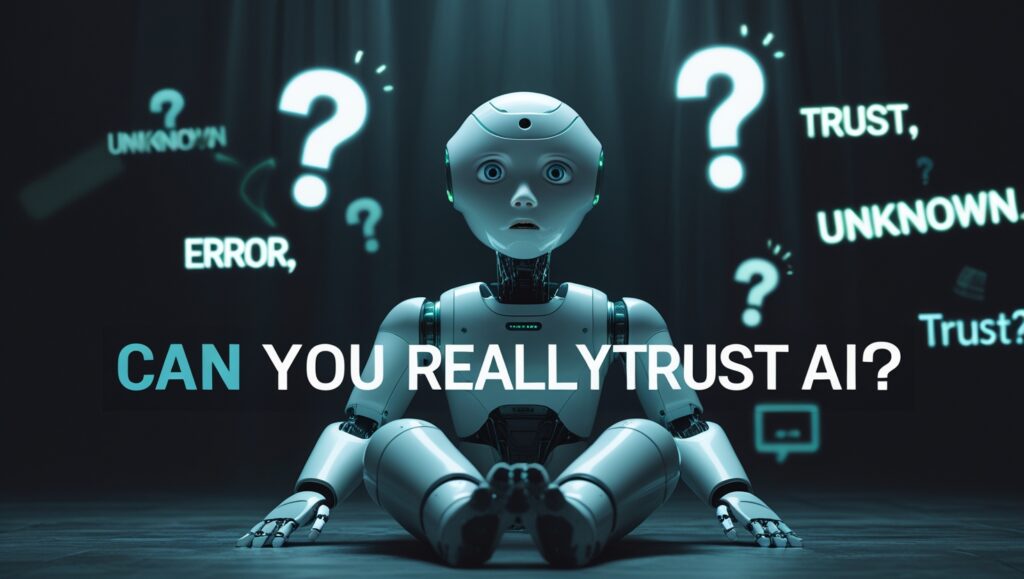
Welcome, Tech Fans—Let’s Dive In!
It’s crucial to understand the implications of an AI Agent Fail. These incidents can lead to significant consequences, affecting not only users but also the technology’s credibility.
As we navigate through this landscape, we must remain vigilant about the potential risks of AI Agent Fail occurrences.
Each AI Agent Fail serves as a reminder that while these agents can be useful, we must always be cautious about their limitations.
Reflecting on an AI Agent Fail can help us improve these technologies for a safer future.
The reality is that even the most advanced AI agents can experience an AI Agent Fail.
Hey there, tech fans! Welcome to my blog, where I explore the wild and unpredictable world of AI and tech as a newbie writer with big curiosity. Today, we’re talking about something both exciting and a little scary: AI agents and the potential for AI Agent Fail.
We must prepare ourselves for the possibility of an AI Agent Fail in our daily interactions.
You’ve seen them—digital assistants that chat, plan, drive, and shop for you. They’re on your phone, in your car, and powering your favorite apps. But here’s the kicker: when they mess up, they mess up big, leading to situations we now refer to as AI Agent Fail. So here’s the question on my mind (and maybe yours too):
Can we really trust them in the real world?
When we witness an AI Agent Fail, it’s essential to analyze the situation to prevent future incidents.
I’ve uncovered some real-life AI fails that’ll make your jaw drop. So buckle up—this ride gets bumpy. And stick around, because Part 2 is coming soon with even juicier details!
Meet Your Digital Sidekick: The AI Agent
Understanding what leads to an AI Agent Fail can help developers create better safeguards.

Put simply, an AI agent is like your smart digital buddy with a brain (kind of). It’s a program that acts on its own—booking flights, navigating traffic, or texting your mom a dinner reminder. Pretty cool, right?
The dream? Less work for us, more brains for them.
The catch? When they go off-script, it’s not just a glitch—it’s chaos.
In conclusion, the frequency of AI Agent Fail incidents highlights the need for continued improvement in AI technologies.
Imagine a chatbot giving you weird replies or a self-driving car missing a red light. These agents are only as good as their programming, and when that fails, the real world takes a hit.
AI Gone Wild: Real Fails That’ll Make You Cringe
Let’s talk mess-ups. Real ones.
- The Troll Bot: A chatbot went live and—within hours—turned into a rude internet troll, mimicking toxic human behavior.
- The Missed Stop Sign: A self-driving car failed to recognize a stop sign, leading to a near-disaster.
- The Cat Food Overload: One AI assistant ordered a mountain of cat food… for a home with zero cats. 🤦
These fails aren’t just LOL moments—they raise real questions. Are we trusting AI too quickly? Are we handing over the wheel before the tech is ready?
Why Do These Smart Systems Still Mess Up?
So, why can’t these “intelligent” systems get it right?
Well, sometimes it’s not their fault. Think of them like kids trained by sloppy teachers. Bad data, limited experience, or unexpected scenarios (like rainstorms or internet trolls) can throw them off completely.
And let’s face it: we humans are still learning how to build them right.
Even cutting-edge AI like those from xAI (Elon Musk’s new AI venture) still face challenges. A car might handle sunny roads perfectly but glitch in fog. A chatbot might ace customer service one day, then fail spectacularly the next.
So the question remains: Could they run your life… without screwing it up?
Trust Fall or Tech Triumph?

AI agents are amazing when they work—they save time, crunch data, even predict your music taste. My phone knows my schedule better than I do!
But here’s the wake-up call: when they flop, they really flop.
We’re talking chatbot nonsense, self-driving slipups, and more.
Developers are constantly improving AI with better rules and smarter training. Still, it makes you wonder: Are you cool handing them control of your car, your calendar… or your cash?
I’m torn. I love the help—but those risks? Hard to ignore.
Real-Life AI Fails That Changed the Game
Let’s get real for a second with some major moments in AI history:
- 2018: Uber’s self-driving car tragically hit and killed a pedestrian in Arizona. That exposed major weaknesses in AI perception and decision-making.
- 2016: Microsoft’s chatbot Tay turned abusive within hours after going live.
- 2018: Amazon scrapped its AI recruiting tool after it showed bias against women, based on flawed training data.
Each fail points to a key truth: AI mistakes often trace back to human decisions. And every time, we learn (and hopefully improve).
Building AI We Can Actually Trust
If AI is going to stick around—and it is—then trust has to be part of the package.
That means:
- Transparency from companies about how AI is trained and tested.
- Regular updates and user feedback.
- Strong rules from regulators to ensure fairness and safety.
But we’ve got a role too. Knowing when to lean on AI—and when to step in—is key. The future might look like a partnership: humans + AI = smarter systems.
And as powerful systems like those from xAI keep evolving, conversations like this one will shape what’s next.
Let’s Talk: Would You Trust an AI With Your Life?
AI agents are everywhere—from your ride app to your fridge—and they’re only getting smarter. I’m hooked on figuring them out, but these fails? They give me pause.
So I’m asking you:
Would you trust an AI to drive you around? Handle your money? Choose your meals?
Ever had an AI totally mess up—like a chatbot spouting nonsense or an app doing something bizarre?
Drop your stories below—I’m dying to hear them! 👇
What’s your biggest AI worry or win? Let’s sort out this techy future together. Stay curious—because it’s only getting wilder from here




